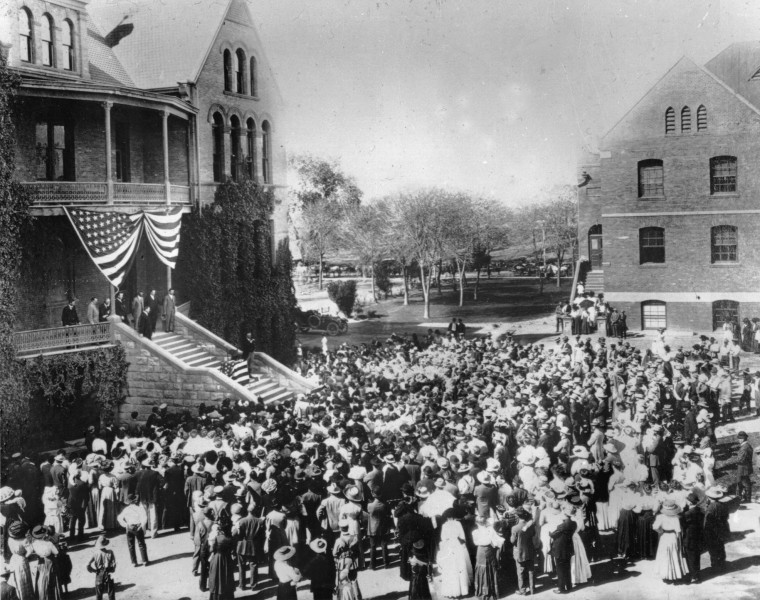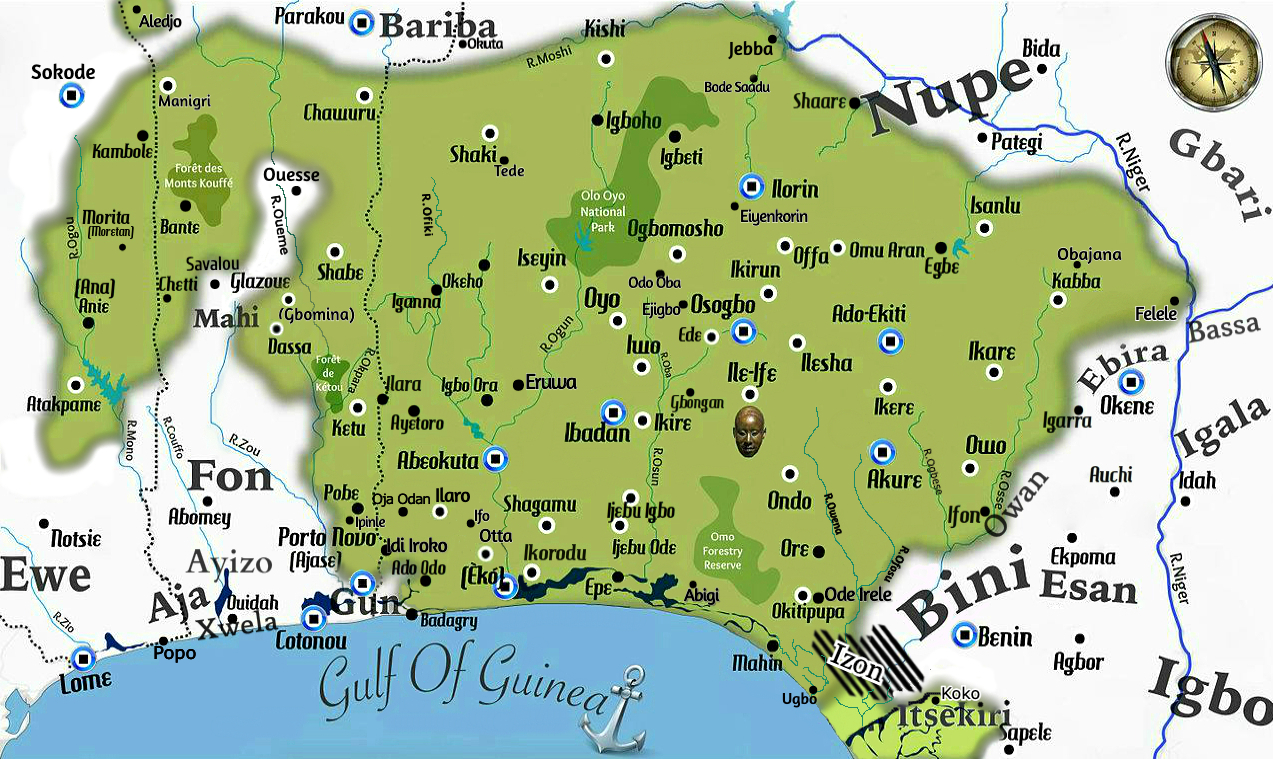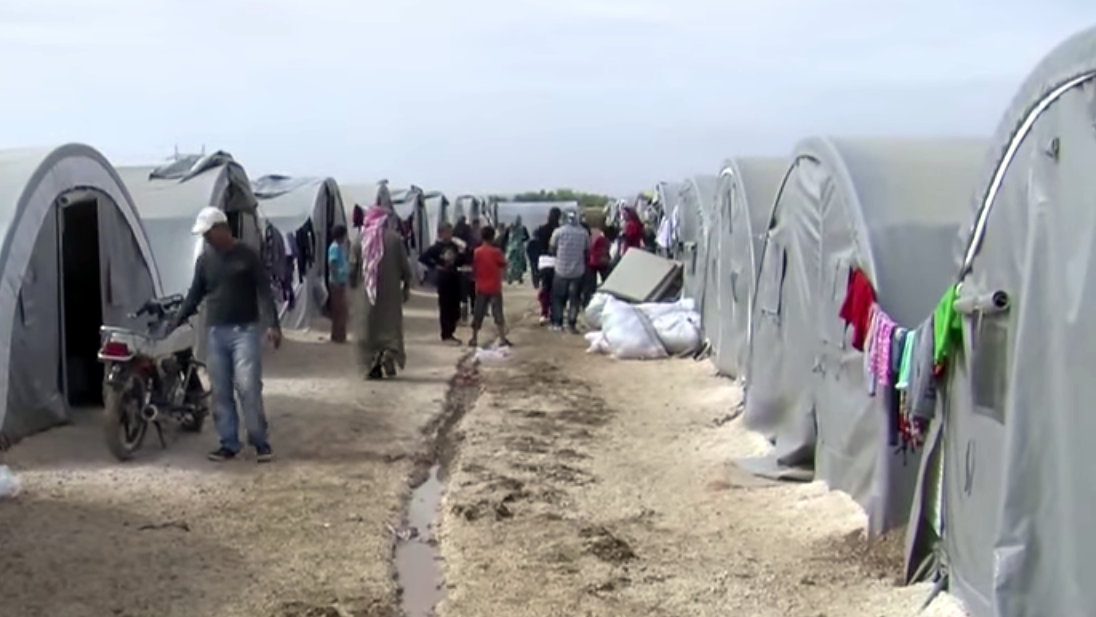|
Oba-Igbomina
Oba-Igbomina (in Yoruba correctly Ọ̀bà, but also written as Òbà), is an ancient Igbomina town in northeastern Isin Local Government Area of Kwara State. It is one of the five related Yoruba towns named "Oba", the others being *Oba-Ile, Olorunda LGA, Osun State, located about 15 km northwest of Osogbo, *Oba-Oke, Olorunda LGA, Osun State, located north-northwest of Osogbo, *Oba-Ile Akure South LGA, Ondo State, located just east of Akure, on Akure-Owo Road, *Oba-Akoko Akoko South-West LGA, Ondo State, located northeast of Owo. The original Ọ̀bà was the capital of an ancient ''Ọ̀bà'' civilization, a kingdom reputed in the oral history of the region as a center of great wealth and enterprise. Most of the extant Oba towns claim to be the original Oba or claim to be the oldest derivative of the ancient civilization. History and archaeology Recent archaeological research results and published works of oral history experts, anthropologists and archeologists of the ... [...More Info...] [...Related Items...] OR: [Wikipedia] [Google] [Baidu] |
Obalumo
The Obalúmo is a royal personage, a traditional monarch amongst the Igbomina clan of the Yorubas of West Africa. The earliest manifestation of his title dates back to the 12th century at the latest, making him a ruler of relative significance in the intricate chiefly hierarchy of the tribe. Prince Oba'lumo Ọbalúmọ̀ or Ọba'lúmọ̀ , (a contraction of Ọba Olúmọ̀), is the titular name of the founding king of the ancient Ìsèdó-Olúmọ̀ city-state, an ancient monarchy of the Igbomina- Yoruba. Translations of the title Ọba’lúmọ̀ as “The King" ( Oba), "the Lord of Knowledge” (Olumo), or “King of the Lords of Knowledge” or “King and Lord of Knowledge”, all meaning wise king, suggests that this monarch, who is reputed in oral history to have been a veteran hunter and warrior, was also a Babalawo (a diviner, healer and priest of the Ifá oracle). Ọba’lúmọ̀ was a prince of the ancient Ọ̀bà civilization in northeastern Yorubaland, a ... [...More Info...] [...Related Items...] OR: [Wikipedia] [Google] [Baidu] |
Yoruba Language
Yoruba (, ; Yor. ) is a Niger–Congo languages, Niger-Congo language that is spoken in West Africa, primarily in South West (Nigeria), Southwestern and Middle Belt, Central Nigeria, Benin, and parts of Togo. It is spoken by the Yoruba people. Yoruba speakers number roughly 50 million, including around 2 million second-language or L2 speakers. As a pluricentric language, it is primarily spoken in a dialectal area spanning Nigeria, Benin, and Togo with smaller migrated communities in Côte d'Ivoire, Sierra Leone and The Gambia. Yoruba vocabulary is also used in African diaspora religions such as the Afro-Brazilian religion of Candomblé, the Caribbean religion of Santería in the form of the liturgical Lucumí language, and various Afro-American religions of North America. Most modern practitioners of these religions in the Americas are not fluent in the Yoruba language, yet they still use Yoruba words and phrases for songs or chants—rooted in cultural traditions. For such pra ... [...More Info...] [...Related Items...] OR: [Wikipedia] [Google] [Baidu] |
Arizona State University
Arizona State University (Arizona State or ASU) is a public university, public research university in Tempe, Arizona, United States. Founded in 1885 as Territorial Normal School by the 13th Arizona Territorial Legislature, the university is one of the List of United States university campuses by enrollment, largest public universities by enrollment in the United States. It was one of about 180 "normal schools" founded in the late 19th century to train teachers for the rapidly growing public common schools. Some closed, but most steadily expanded their role and became state colleges in the early 20th century, then state universities in the late 20th century. One of three universities governed by the Arizona Board of Regents, Arizona State University is a member of the Association of American Universities (AAU) and is Carnegie Classification of Institutions of Higher Education, classified among "R1: Doctoral Universities – Very High Research Activity". ASU has over 183,000 st ... [...More Info...] [...Related Items...] OR: [Wikipedia] [Google] [Baidu] |
Ora-Igbomina
Ora-Igbomina is an ancient Igbomina town in Ifedayo Local Government Area, Osun State, Nigeria. With Oke-Ila Orangun, it constitutes the two major towns in the local government area. The conjoining boundary town among Osun, Ekiti and Kwara Kwara () is a state in Western Nigeria, bordered to the east by Kogi State, to the north by Niger State, and to the south by Ekiti, Osun, and Oyo states, while its western border makes up part of the international border with Benin. Its capi ... States, ''Nigerian Tribune'', 18 April 2017. this historical town was the first town to accept Christianity(ref.: and invariably Western education in Igbominaland. Christianity was brought to Ora in 1895 by [...More Info...] [...Related Items...] OR: [Wikipedia] [Google] [Baidu] |
Ila, Nigeria
Ila is a local government area in Osun State, Nigeria. Its headquarters are in the town of Ila Orangun. It has an area of 303 km and a population of 62,049 at the 2006 census. The postal code A postal code (also known locally in various English-speaking countries throughout the world as a postcode, post code, PIN or ZIP Code) is a series of letters or numerical digit, digits or both, sometimes including spaces or punctuation, inclu ... of the area is 234. References Local Government Areas in Osun State {{Osun-geo-stub ... [...More Info...] [...Related Items...] OR: [Wikipedia] [Google] [Baidu] |
Isedo
Ìsèdó (also known as Ìsẹ̀dó-Olúmọ̀) was an ancient Igbomina kingdom in northeastern Yorubaland of Nigeria. Ìsẹ̀dó was founded as a new city-state several centuries ago (between 1250 and 1400) by Ọba'lumọ, a Prince of the ancient Oba civilization (whose name or appellation is contracted from "Ọba Olumọ" meaning "knowledgeable king", or "king of the lords of knowledge"). Ìsẹ̀dó is fully known and called "Ìsẹ̀dó-Olúmọ̀" using its founder-king's name as an identifier suffix. Foundation and development Obalumo, a prince of the Oba civilization, and a veteran hunter and warrior, founded Ìsẹ̀dó, his new city-state in one of the areas of his frequent hunting expeditions. Recent archaeological research results (and published works of oral history experts, anthropologists and archaeologists of the Arizona State University, USA and the University of Ibadan, Nigeria); of the region's contemporary and later settlem ... [...More Info...] [...Related Items...] OR: [Wikipedia] [Google] [Baidu] |
Oke-Ila
Òkè-Ìlá Òràngún (often abbreviated as Òkè-Ìlá) is an ancient city in southwestern Nigeria that was capital of the middle-age Igbomina- Yoruba city-state of the same name. Òkè-Ìlá is a city in Ọṣun State, Nigeria. It is situated in the northeastern part of Yorubaland in southwestern Nigeria. Òkè-Ìlá Òràngún’s sister city (and sister kingdom) Ìlá Òràngún is located about to the northeast, separated by the north-trending ridges and gorges of the Oke-Ila Quartzites. Òkè-Ìlá Òràngún is currently capital of the Ifedayo Local Government Area of Ọsun State. The Ifedayo LGA (Local Government Area) Secretariat is located on the northern outskirts of the town. The administration of the two major towns and the several smaller towns and villages is conducted from the Ifedayo LGA Secretariat. The paramount ruler of the town is Oba (Dr.) Adedokun Abolarin, Òràngún of Òkè-Ìlá (Aroyinkeye 1). He was a lawyer before his installation as th ... [...More Info...] [...Related Items...] OR: [Wikipedia] [Google] [Baidu] |
Isedo, Nigeria
Ìsèdó (also known as Ìsẹ̀dó-Olúmọ̀) was an ancient Igbomina kingdom in northeastern Yoruba people, Yorubaland of Nigeria. Ìsẹ̀dó was founded as a new city-state several centuries ago (between 1250 and 1400) by Obalumo, Ọba'lumọ, a Prince of the ancient Oba civilization (whose name or appellation is contracted from "Ọba Olumọ" meaning "knowledgeable king", or "king of the lords of knowledge"). Ìsẹ̀dó is fully known and called "Ìsẹ̀dó-Olúmọ̀" using its founder-king's name as an identifier suffix. Foundation and development Obalumo, a prince of the Oba, Nigeria, Oba civilization, and a veteran hunter and warrior, founded Ìsẹ̀dó, his new city-state in one of the areas of his frequent hunting expeditions. Recent archaeological research results (and published works of oral tradition, oral history experts, anthropologists and archaeologists of the Arizona State University, USA and the University of Ibadan, Nigeria) ... [...More Info...] [...Related Items...] OR: [Wikipedia] [Google] [Baidu] |
Clans
A clan is a group of people united by actual or perceived kinship and descent. Even if lineage details are unknown, a clan may claim descent from a founding member or apical ancestor who serves as a symbol of the clan's unity. Many societies' exogamy rules are on a clan basis, where all members of one's own clan, or the clans of both parents or even grandparents, are excluded from marriage as incest. Clans preceded more centralized forms of community organization and government, and have existed in every country. Members may identify with a coat of arms or other symbol. Etymology The word "clan" is derived from the Gaelic word meaning "children", "offspring", "progeny" or "descendants". According to the ''Oxford English Dictionary'', the word "clan" was introduced into English in around 1406, as a descriptive label for the organization of society in Ireland and the Scottish Highlands. None of the Irish and Scottish Gaelic terms for kinship groups is cognate to English ... [...More Info...] [...Related Items...] OR: [Wikipedia] [Google] [Baidu] |
Yorubaland
Yorubaland () is the homeland and cultural region of the Yoruba people in West Africa. It spans the modern-day countries of Nigeria, Togo and Benin, and covers a total land area of . Of this land area, 106,016 km2 (74.6%) lies within Nigeria, 18.9% in Benin, and the remaining 6.5% is in Togo. Prior to European colonization of Africa, European colonization, a portion of this area was known as Yoruba country. The geo-cultural space contains an estimated 55 million people, the majority of this population being ethnic Yoruba people, Yoruba. Geography Geo-physically, Yorubaland spreads north from the Gulf of Guinea and west from the Niger River into Benin and Togo. In the northern section, Yorubaland begins in the suburbs just west of Lokoja and continues unbroken up to the Ogooué River tributary of the Mono River in Togo, a distance of around 610 km. In the south, it begins in an area just west of the Benin and Osse River (Nigeria), Osse (Ovia) river occupied by the Ilaj ... [...More Info...] [...Related Items...] OR: [Wikipedia] [Google] [Baidu] |
Diaspora
A diaspora ( ) is a population that is scattered across regions which are separate from its geographic place of birth, place of origin. The word is used in reference to people who identify with a specific geographic location, but currently reside elsewhere. Notable diasporic populations include the Jewish Diaspora formed after the Babylonian exile; Assyrian diaspora following the Sayfo, Assyrian genocide; Greeks that fled or were displaced following the fall of Constantinople and the later Greek genocide as well as the Istanbul pogroms; the emigration of Anglo-Saxons (primarily to the Byzantine Empire) after the Norman Conquest, Norman Conquest of England; the Chinese people, southern Chinese and South Asian diaspora, South Asians who left their homelands during the 19th and 20th centuries; the Irish diaspora after the Great Famine (Ireland), Great Famine; the Scottish diaspora that developed on a large scale after the Highland Clearances, Highland and Lowland Clearances; Romani ... [...More Info...] [...Related Items...] OR: [Wikipedia] [Google] [Baidu] |




